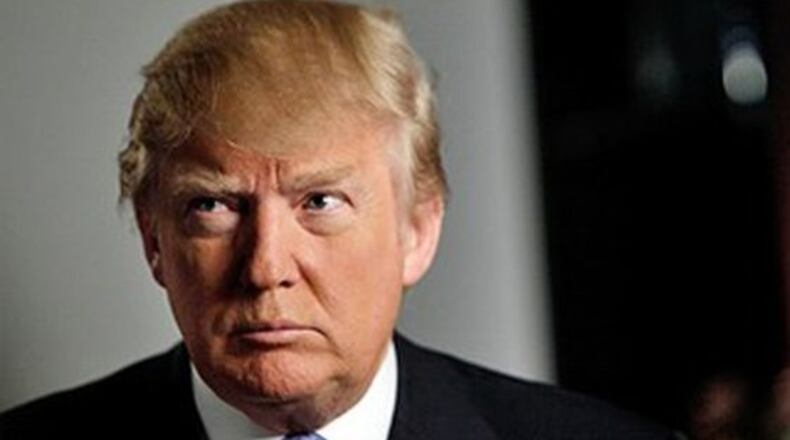It has been fascinating to watch the conservative intelligentsia struggle with the phenomenon that is Donald Trump, the man whom Kevin Williamson of National Review dismisses as "a witless ape," "a ridiculous buffoon with the worst taste since Caligula," "a reality-television grotesque with his plastic-surgery-disaster wife, grunting like a baboon about our country's 'brand' and his own vast wealth."¹
Williamson is not alone in his disdain. Stephen Hayes at the Weekly Standard has called Trump "a complete and utter disgrace. An embarrassment to humanity." "Trump is a fascist," says neocon historian Max Boot. "And that's not a term I use loosely or often. But he's earned it."
The elite's disgust is not limited to Trump. It is also directed at those who support him.
"If by now you don't find Donald Trump appalling, you're appalling....," writes Bret Stephens at the Wall Street Journal. "Mr. Trump is a loudmouth vulgarian appealing to quieter vulgarians. These vulgarians comprise a significant percentage of the GOP base. The leader isn't the problem. The people are. It takes the demos to make the demagogue."
Jay Cost of the Weekly Standard reaches a similar conclusion, expressing deep frustration that the GOP base has slipped the leash and no longer obeys its betters. Under the arrangement in effect until now, Cost writes, "The party voters possess the formal power to decide, but there is a vast infrastructure of donors, strategists, and insiders — an elite establishment — whose job is to control informally the people's decision."
According to Cost, that "informal control" wielded by the elite establishment was made possible and necessary by the fact that "a vast swath of the GOP primary electorate ... pay scant attention to the details of politics." And as he makes clear, the conservative elite has been just fine with that arrangement. They controlled the information flow, they decided what was ideologically acceptable. It worked because the base trusted the elite to guide them; the elite trusted the base to follow them.
But in a world of Fox News, social media, talk radio and profit-driven rabble-rousers disguised as Tea Party tribunes of the people, the party elite no longer serve that function. They have lost control, and the resulting sense of desperation is palpable. Judging from their rhetoric, it's as if the barbarians are at the gate.
Before Christmas, for example, Trump announced that he admires the leadership style of Vladimir Putin, a fascistic sentiment that had been getting significant traction on the right for months before Trump voiced it. Even when it was pointed out that Putin's leadership style includes the murder and incarceration of his critics, including journalists, Trump brushed such transgressions aside with the observation that "at least he's a leader, unlike what we have in this country."
That sent Charles C.W. Cooke at National Review into another operatic anti-Trump screed:
... This will not 'finish' Trump off, of course, for Trump is the focal point in what has essentially become an unfalsifiable conspiracy theory in which the "establishment" is always wrong and Trumpism is always the solution. Facts, frankly, no longer enter into this calculation; reason, too, has become an afterthought."
Cooke's sense of despair is pretty clear, and I suspect it was compounded rather than eased after reading the comments section to his own article.²
I do give Cooke and others credit for this much. Sure, their anger at Trump is based in part on their own loss of influence. Trump's ascension has also exposed the fact that the modern conservative movement is grounded not in the lofty principles of Edmund Burke and William F. Buckley, as they liked to assume, but instead in anti-intellectualism, fear and resentment. And in practical terms, they have good cause to worry about Trump's impact on the GOP's electoral ambitions in 2016 and beyond.
But deep down, I think, their sense of despair is driven by a sincere and patriotic concern for the country's future. Like many of the rest of us, they are honestly appalled by what they are seeing, and honestly worried about where it might lead. And with the connection between base and elite now severed, they feel powerless to intervene.
----------------------------
¹ Someone has compiled a whole series of such rants by prominent conservative intellectuals, unfortunately updated only through late August. It's really something.
--------------
²Here's a brief taste of those comments:
"If Putin did have journalists killed that is wrong, but how does that have any bearing on Trump? How many people have Obama, and the Clintons had killed? I guarantee it is more than a couple. Trump should be the next president, period."
"I can think of a few "journalists" I'd like to see 'offed'."
About the Author
The Latest
Featured



